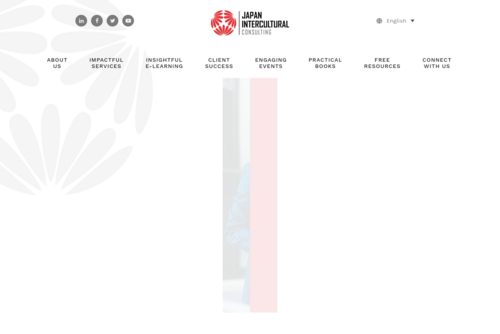Various issues should be considered when planning sexual harassment prevention training programs for Japanese. Addressing these items will help you ensure that your programs are effective and your company has done its best to prevent problems.
Read More
These stories submitted by JapanIntercult will be featured BizSugar's homepage
Hosting Japanese visitors at your office

From http://www.japanintercultural.com 4201 days ago
It’s important to be prepared when a Japanese customer, supplier, or other guest is going to be visiting your office. Making a good impression is vital to the success of your work together. What do you do to avoid cultural gaffes and make the meeting a successful one?
Read More
Top ten expectations of Japanese customers

From http://www.japanintercultural.com 4201 days ago
Customer service is a highly developed art form in Japan. As foreign firms become increasingly active in the Japanese market, they face many challenges in meeting with Japanese customer service expectations.
Read More
The various roles of Japanese expatriates

From http://www.japanintercultural.com 4212 days ago
Many Japanese expatriates don’t have a clear idea of what their role is...most don’t even have job descriptions, so it’s no wonder they feel unclear about their mission.
Read More
Read More
Building a hybrid culture – Americans and Japanese working together

From http://www.japanintercultural.com 4214 days ago
Japanese and Americans have radically different assumptions about how to communicate, how to make decisions, how to share information, how to run meetings, how to evaluate alternatives, how to deal with problems – in short, about virtually every aspect involved in getting work done.
Read More
Providing data effective for persuading Japanese

From http://www.japanintercultural.com 4214 days ago
When wanting to convince someone Japanese to do something in accordance with American customs or commonly-accepted practices, I find that it’s useful to assume that they are not necessarily familiar with how it’s typically approached in the U.S.
Read More
Preference for Japanese suppliers?

From http://www.japanintercultural.com 4214 days ago
In Japan, customer-supplier relationships are far more close and interdependent than the arm’s length relationships that are considered ideal in many western countries. A track record of good quality and service in Japan can also provide reassurance that things will go well.
Read More
Successful presentations to Japanese

From http://www.japanintercultural.com 4226 days ago
There are definitely some pitfalls to avoid when making presentations to Japanese. Understanding how they will process the information being covered along with how it is presented can make a big difference in getting everyone on the same page.
Read More
Read More
Stay away from irony with the Japanese

From http://www.japanintercultural.com 4233 days ago
The Japanese excel at indirect communication, they do it though extreme tact and understatement, rather than irony. When they listen to Americans, the Japanese tend to believe our words and are not looking for any hidden meaning. Americans have a reputation for being honest and straightforward.
Read More
Orienting the new Japanese manager

From http://www.japanintercultural.com 4233 days ago
American managers in the same situation would likely call a meeting to introduce themselves, Japanese often prefer to keep a low profile and get to know the organization more organically. Take the initiative to set up a meeting to get to know him and also to introduce your staff and their functions
Read More
Subscribe
![]() “In the ever-evolving landscape of Search Engine Optimization (SEO),...”
“In the ever-evolving landscape of Search Engine Optimization (SEO),...”
![]() “Rachel: Great to hear! Thanks for your kind words! :)
All the Best,
Martin...”
“Rachel: Great to hear! Thanks for your kind words! :)
All the Best,
Martin...”
![]() “Thank you, Martin. That's a fantastic motto... and I couldn't agree more!...”
“Thank you, Martin. That's a fantastic motto... and I couldn't agree more!...”
![]() “Lisa: Good to hear! Thanks for your response....”
“Lisa: Good to hear! Thanks for your response....”
![]() “For sure, I know I did years ago when I was working for others....”
“For sure, I know I did years ago when I was working for others....”







